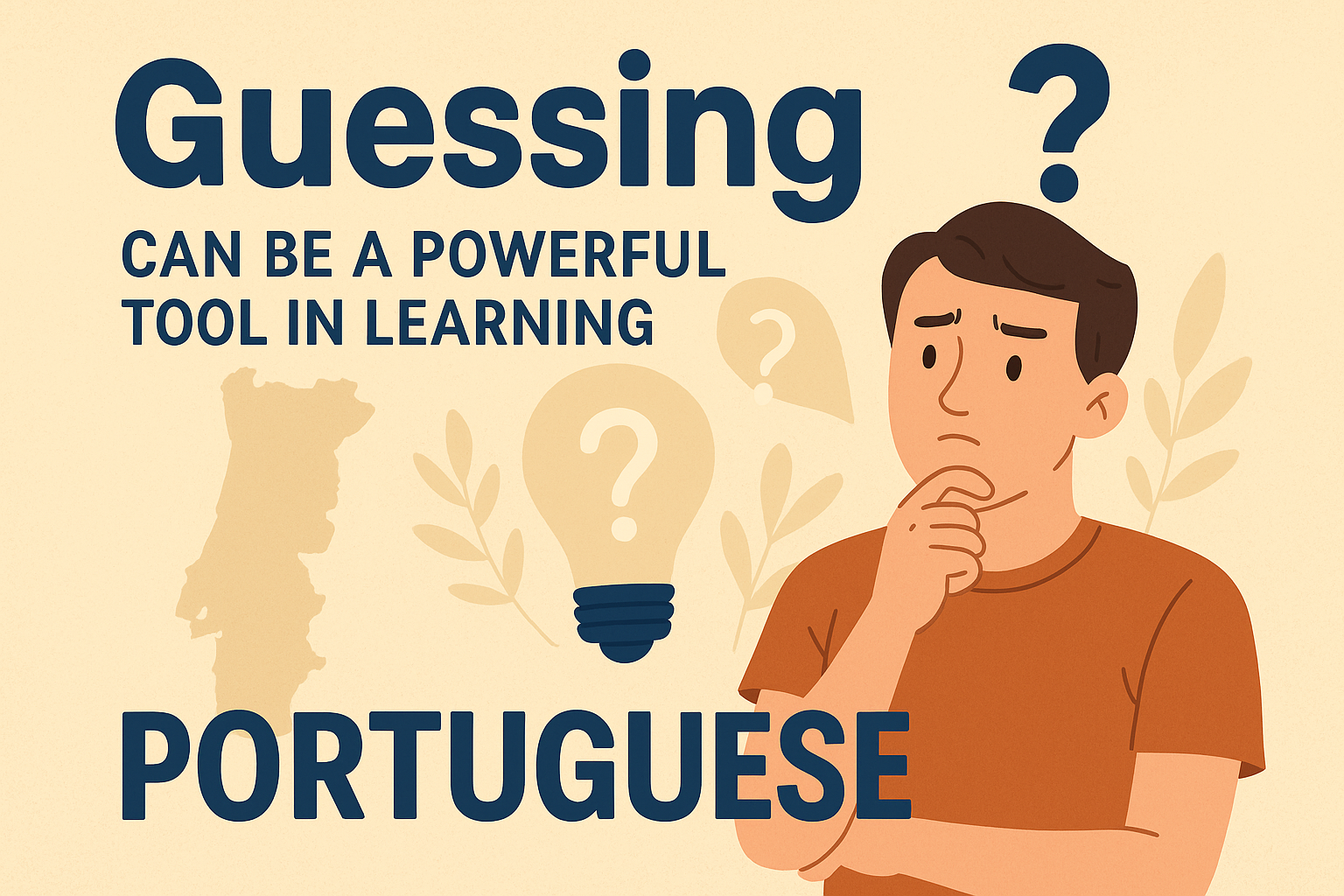
Learning Strategy & Planning
Why Guessing Can Be a Powerful Tool in Learning Portuguese
In school, guessing often felt like cheating. But when it comes to learning Portuguese, guessing is one of your best tools.
Here’s why it works and how to do it well.
1. Portuguese Has Lots of Patterns
If you know any Romance language (or even just English), you can make some very smart guesses about Portuguese words.
- Nation → nação
- Hospital → hospital
- Responsible → responsável
Once you start seeing these patterns, you’ll be able to predict vocabulary and grammar, even when you haven’t studied it formally.
2. Guessing Builds Confidence
Making guesses gives you permission to engage with the language, rather than freeze up.
It trains your brain to make connections, and the feedback (when you’re right or wrong) is what helps you improve.
3. You're Probably Right More Than You Think
Many Portuguese words are logical or follow Latin-based roots. If you see a word like difícil, it’s safe to guess it means “difficult.”
Even if you’re wrong, you’re learning and that’s a win.
4. How to Guess Effectively
- Look at context: pictures, tone, nearby words.
- Compare to similar words in other languages.
- Try the “plug it in” test: does it make sense in the sentence?
- Use a dictionary after the fact to confirm or learn.
Final Thought
Guessing is not guessing blindly, it’s pattern recognition.
It’s an underrated superpower for learners. Use it actively, and you’ll build vocabulary, intuition, and confidence along the way.